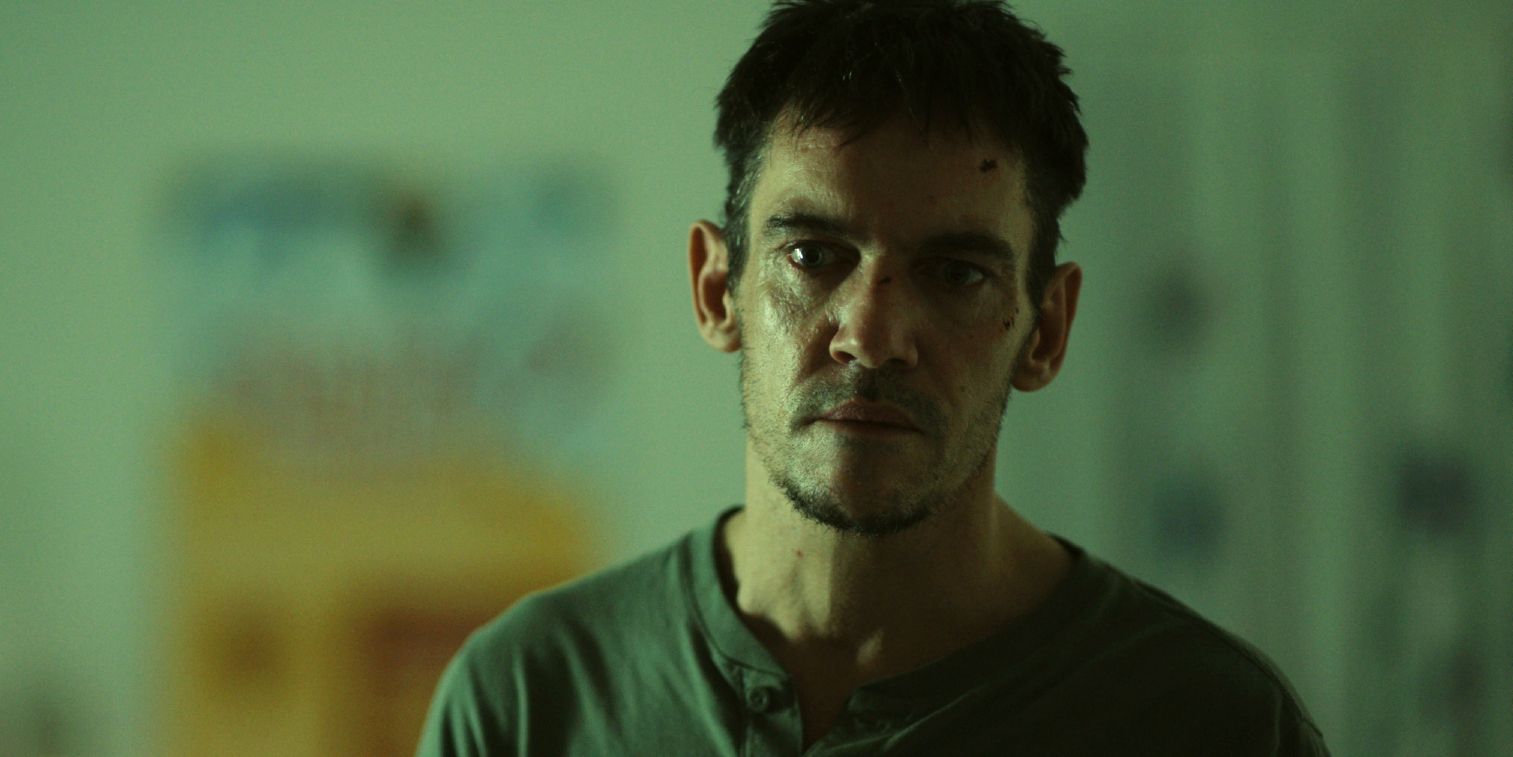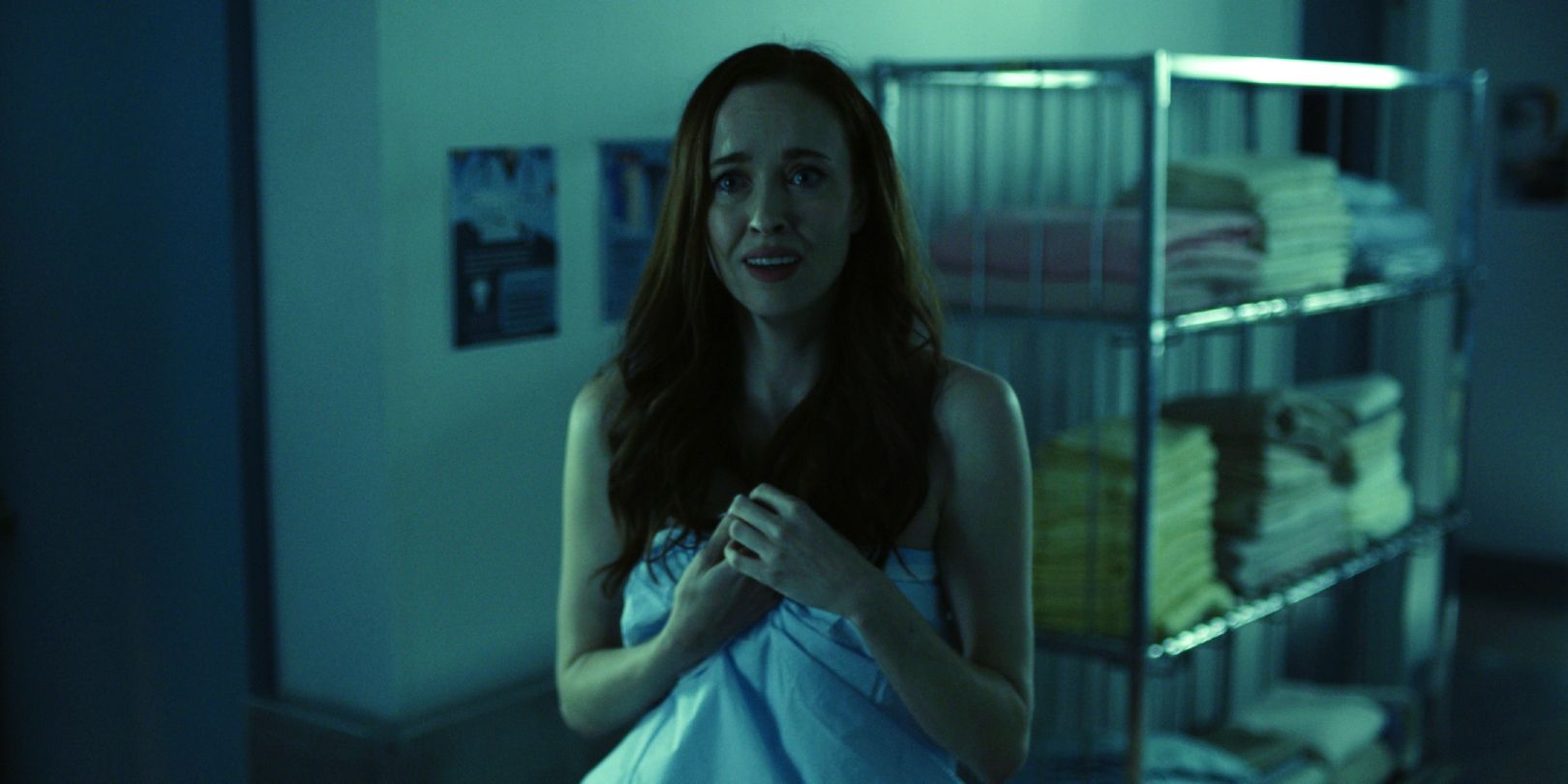Movies are the product of multiple elements working in unison, and in the very best of them, everything is firing on all cylinders. Usually, if one or two aspects aren't so great, quality in other places can rescue the viewing experience. Who hasn't been drawn into a lackluster story by winning performances and a moving score, or forgiven obvious budgetary constraints because of creative directing and editing? But, as Disquiet unfortunately demonstrates, it is perhaps most difficult to come back from a truly bad script. It forces the actors to create compelling characterization where there isn't any and the filmmaking to build tension as the dialogue constantly deflates it, only for all that effort to end in an unearned, unsatisfying climax anyway. An uphill battle in the best of cases, this film manages no such redemption, leaving little reason to recommend it.
Disquiet opens with some blunt voiceover from Sam (Jonathan Rhys Meyers), a married workaholic who laments neglecting his wife as he is rushed to the emergency room after being hit by a drunk driver. He wakes up in a hospital bed disoriented — the building seems eerily abandoned, with no one coming to answer his call button. The only other person he can see is an old man in another bed, who, judging by his long, wispy hair and disconcerting finger nails, has been comatose for some time. Only, when Sam manages to get up, the other bed is suddenly empty. Then it isn't. Then the old man, with fast zombie-esque energy, attacks Sam, who fights back and wins, only for his fallen aggressor to disappear and reappear in his bed. Wherever Sam has found himself, it isn't quite reality, and a journey through the hospital reveals he isn't the only self-possessed person beset by sinister forces. They must band together to find an exit, but more is clearly at stake than just escape, and Sam must discover the truth of his situation if he is to make it back home.
To a certain extent, Disquiet is structured like a puzzle film, with the viewer encouraged to piece together the mystery of Sam's limbo. This doesn't work in its favor. In this script, the only layer in which meaning can exist is on the surface, and the film is painfully obvious with its references and allusions. In one particularly egregious bit of dialogue, one character (Rachelle Goulding) introduces herself to Sam by telling him, "It's Doctor, or Lily, but not Lilith. I hate that name," just in case the name of Judaic mythology's primordial she-demon isn't what everyone would naturally assume Lily is short for. Pair that with the kindly man in a wheelchair, who is simultaneously portrayed as Lily's partner and opponent, being named Virgil (Garry Chalk) and it's not hard to see where the story is headed. There is potential in its overall premise, but the ideas being explored are made textual so aggressively that there's little joy in trying to tease them out.
Indeed, thin characterization across the board can make some of its themes quite offensive if dwelled on for too long. The first person Sam encounters who doesn't try to attack him is Monica (Elyse Levesque), who went under for breast enhancement surgery and woke to discover three women, dolled-up, bloodied, and sporting plastic surgery scars, ready to hold her down and carve her up. Why they exist is (sort of) explained eventually, but as the rules of this world become clearer, with its combination of religious references, psychic manifestations, and relationship to death, Disquiet's treatment of Monica looks increasingly cruel. Equally problematic is the attempt to involve racial profiling by the police with Frank (Lochlyn Munro), a cop wounded during a convenience store robbery, and Carter (Trezzo Mahoro), the Black man Frank shot when he mistook him for the robber. As much as it would be unfair to expect a nuanced treatment of the subject from this movie, there is an element of design implied in who ends up in this hospital that makes Carter being there at all baffling.
With all this working against them, the performances could hardly come out unscathed, and no one leaves a particularly positive impression, save perhaps Chalk's Virgil, who sometimes feels like an echo of Twin Peaks' Major Briggs. The only real positives are the cinematography and set design, which work together to turn the hospital corridors into unsettling, unnatural spaces. The atmosphere this creates succeeds in generating tension at times, only for it to end up undercut by the erratic tone, which speaks to a general lack of control over how to make the viewer feel at a given moment. That fundamental failing erodes what could have been the last pleasure of watching Disquiet, making it easy to advise giving this one a miss.
Disquiet released in theaters, digital, and on demand on February 10. The film is 85 minutes long and is rated R for violence, language and some nudity.



